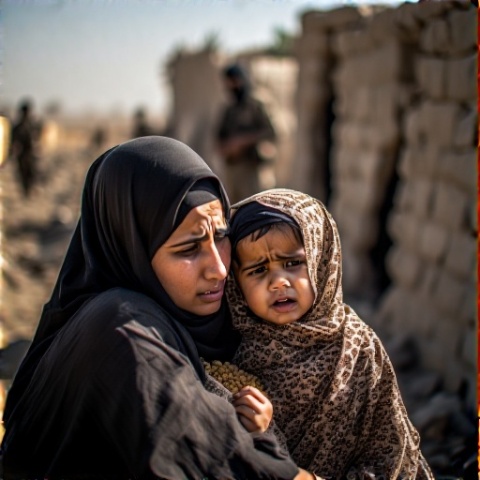The Prophet Muhammad ﷺ once asked his companions, “Do you know what backbiting is?” When they deferred to his wisdom, he responded: “It is mentioning about your brother something he dislikes.” When asked whether this applied even if the accusation were true, he clarified: “If what you say about him is true, you have backbiting him. If it is false, you have slandered him” . This profound hadith encapsulates Islam’s uncompromising stance against backbiting (ghibah), a social poison that corrodes communities, invalidates good deeds, and risks eternal consequences.
In an age where gossip dominates social interactions – from casual conversations to viral social media posts – understanding Islam’s teachings on backbiting becomes critical. This article analyzes backbiting through primary Islamic sources, examining its Quranic prohibitions, prophetic warnings, real-world consequences, and practical solutions for purification.
Quranic Condemnation: A Sin Compared to Cannibalism
The Quran condemns backbiting in Surah Al-Hujurat (49:12), using a powerful analogy:
یَـٰۤأَیُّهَا ٱلَّذِینَ ءَامَنُوا۟ ٱجۡتَنِبُوا۟ كَثِیرࣰا مِّنَ ٱلظَّنِّ إِنَّ بَعۡضَ ٱلظَّنِّ إِثۡمࣱۖ وَلَا تَجَسَّسُوا۟ وَلَا یَغۡتَب بَّعۡضُكُم بَعۡضًاۚ أَیُحِبُّ أَحَدُكُمۡ أَن یَأۡكُلَ لَحۡمَ أَخِیهِ مَیۡتࣰا فَكَرِهۡتُمُوهُۚ وَٱتَّقُوا۟ ٱللَّهَۚ إِنَّ ٱللَّهَ تَوَّابࣱ رَّحِیمࣱ
O you who have believed, avoid much [negative] assumption. Indeed, some assumption is sin. And do not spy or backbite each other. Would one of you like to eat the flesh of his brother when dead? You would detest it. And fear Allah; indeed, Allah is Accepting of repentance and Merciful.
[49:12]
This verse links backbiting to three profound metaphors:
- Spiritual Cannibalism: Just as eating corpses revolts physical senses, backbiting defiles the soul. Ibn Kathir’s tafsir notes that “Allah equated backbiting to eating human flesh to emphasize its repugnance”.
- Compound Sins: The verse connects backbiting to its root causes – negative assumptions (su’ al-zann) and spying (tajassus). Together, these form a “trifecta of social destruction” according to classical scholars.
- Divine Mercy Contextualized: Despite the graphic imagery, the verse concludes with Allah’s mercy – a reminder that sincere repentance can erase even this heinous sin.
Another severe warning appears in Surah Al-Humazah, where Allah condemns “those who slander and backbite” (104:1) and promises “the Crusher (Hellfire) that shatters bones and boils flesh” (104:4-5) as their eternal abode.
The Prophet Muhammad (PBUH) clarified this further in a Hadith:
“Do you know what backbiting is? It is to mention about your brother something he dislikes. If what you say about him is true, you have backbitten him. If it is false, you have slandered him.”
(Sahih Muslim, Hadith 2589)
Examples of Backbiting
Backbiting includes:
- Criticizing someone’s physical appearance, lineage, or character.
- Spreading rumors or secrets.
- Mocking others, even in jest.
A famous incident involves Aisha (RA), who gestured to the Prophet (PBUH) about a woman’s short stature. He replied, “You have backbitten her!” (Sahih Bukhari, Hadith 6065).
Four Modern Manifestations of Backbiting
Social Media “Venting”
Posting complaints like “Some people are so ungrateful!” without names constitutes indirect backbiting if the audience can identify the target – a ruling confirmed by contemporary fatwas.
“Just Pray for Them” Backdoors
Phrases like “Keep so-and-so in your prayers; they’re struggling with…” often mask backbiting under the guise of concern. The Prophet ﷺ warned: “Beware of the ‘prayer request’ that’s actually gossip” (Al-Tirmidhi).
Workplace “Problem-Solving”
Discussing a colleague’s flaws with others – even to “improve teamwork” – becomes backbiting unless done confidentially with someone who can actually resolve the issue.
Celebrity Gossip Culture
While some scholars permit discussing public figures’ observable faults, IslamWeb warns that “obsessively dissecting celebrities’ lives often crosses into forbidden ghibah” – especially when mocking their appearance or personal struggles.
Prophetic Warnings: Eternal Consequences of Tongue’s Misuse
In a haunting hadith, the Prophet ﷺ redefined spiritual bankruptcy:
“The bankrupt among my Ummah are those who come with prayers, fasting, and charity, but also cursed others, slandered, stole wealth, shed blood, and beat people. Their victims will take from their good deeds until they’re left bankrupt, forced to bear others’ sins before being cast into Hell” (Sahih Muslim 2581).
This narration emphasizes that backbiting nullifies worship – a reality further illustrated by another hadith where the Prophet ﷺ stated: “Fasting isn’t just abstaining from food/drink. One must also abandon obscenity and backbiting” (Al-Muwatta).
Grave Punishments for Unrepentant Backbiters
The Prophet ﷺ described his Miraj experience: “I saw people scratching their faces with copper nails. Jibril explained: ‘These are those who backbited and slandered’” (Abu Dawud). Classical scholars interpret this as their ongoing punishment in the grave – a preview before Hell’s eternal torment.
When Is Backbiting Permitted? Exceptions in Islamic Jurisprudence
Scholars stipulate exceptional cases where mentioning someone’s faults is permissible:
- Seeking Justice: Reporting oppression to authorities.
- Preventing Harm: Warning others about a fraudster or abusive individual.
- Legal Testimony: Providing honest testimony in court.
These exceptions are narrowly defined and require pure intentions (Al-Walid Academy).
Breaking the Cycle: Practical Steps from Sunnah
The “Three Gates” Self-Check
Before speaking about others, ask:
- Is it true? (If unsure, it’s slander)
- Is it necessary? (Unless preventing harm, it’s likely gossip)
- Is it kind? (Allah says: “Speak good or remain silent” – Sahih Bukhari)
Digital Detoxification
- Mute Gossip Groups: The Prophet ﷺ said: “Whoever believes in Allah and the Last Day, let them speak good or stay silent” (Sahih Bukhari).
- Avoid “Subtweeting”: Vague-posting to provoke drama falls under “hidden backbiting” condemned by scholars.
Transformative Repentance (Tawbah Nasuh)
- Seek Forgiveness from Allah: As Quran 49:12 ends with “Allah is Oft-Returning, Merciful” 7.
- Apologize to Victims: The Hanbali scholar Ibn Qudamah stressed that backbiting requires both divine and human forgiveness.
- Counterbalance with Good Deeds: If you backbit someone’s charity work, actively promote their cause.
The Role of Repentance in Overcoming Backbiting
Allah’s mercy is central to Islam. Surah Az-Zumar (39:53) assures:
۞ قُلۡ یَـٰعِبَادِیَ ٱلَّذِینَ أَسۡرَفُوا۟ عَلَىٰۤ أَنفُسِهِمۡ لَا تَقۡنَطُوا۟ مِن رَّحۡمَةِ ٱللَّهِۚ إِنَّ ٱللَّهَ یَغۡفِرُ ٱلذُّنُوبَ جَمِیعًاۚ إِنَّهُۥ هُوَ ٱلۡغَفُورُ ٱلرَّحِیمُ
Say, “O My servants who have transgressed against themselves [by sinning], do not despair of the mercy of Allah. Indeed, Allah forgives all sins. Indeed, it is He who is the Forgiving, the Merciful.”
[39:53]
The Prophet (PBUH) said:
“The one who repents from sin is like one who never sinned.”
(Sunan Ibn Majah, Hadith 4250)
Answering Common Questions
“Does Listening to Backbiting Make Me Complicit?”
Yes. The Prophet ﷺ said: “The listener is one of the two backbiters” (Al-Tabarani). Politely interrupt with “Let’s discuss something else” or mention the person’s good qualities.
“How to Handle Family Who Constantly Gossip?”
- Set boundaries: “I’m trying to avoid backbiting. Could we talk about ___ instead?”
- Redirect conversations to positive topics.
- Lead by example, praising absent relatives’ kindness.
Conclusion: A Call to Moral Vigilance
Backbiting is a spiritual poison with far-reaching consequences. By adhering to Quranic guidance and Prophetic teachings, Muslims can purify their speech and foster communities rooted in compassion. Let us ask ourselves daily: Does my speech uplift others or tear them down?







